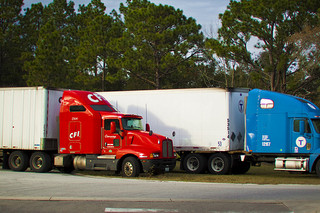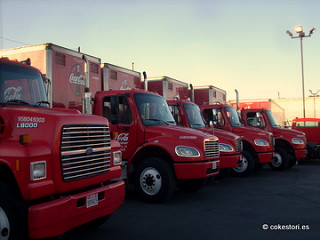Obama Targets Big Truck Fuel Mileage: What Does This Mean for Business?

On Tuesday Feb. 18, President Obama announced new regulations for big trucks and fuel economy. In his recent address, the president stated:
“Heavy-duty trucks account for just 4 percent of all the vehicles on the highway. […] But they’re responsible for about 20 percent of carbon pollution in the transportation sector. So trucks like these are responsible for about 20 percent of our on-road fuel consumption. And because they haul about 70 percent of all domestic freight — 70 percent of the stuff we use, everything from flat-screen TVs to diapers to produce to you name it — every mile that we gain in fuel efficiency is worth thousands of dollars of savings every year.”This article is for Premium Members only. Please login below to read the rest of this article.
Not a Premium Member yet? Become one today.
[login_form redirect=’https://www.procurementbulletin.com/2897’]
[show_to accesslevel=’Premium Members’]
President Obama not only outlined the state of eco-friendly transportation, but U.S. trade transportation as well. The speech delves further into legislation that would target big truck fuel mileage. Read on to learn what this means for business as usual.
Setting Standards

Despite the recent speech, the legislation is not new. They introduced the bill in 2011, however, it wasn’t set to take effect until this year. The legislation will last until 2018. What are the standards exactly?
The transportation bill now requires that companies with large trucks (big rigs and semi-trucks) reduce fuel emissions by up to 20 percent. So far, how companies reduce emissions is up to them; however, the push to reduce fuel consumption points to expecting fuel-efficient or hybrid fleets. Many companies will need to update their entire line of trucks to meet the new standards proposed by the bill.
What Businesses Want
According to President Obama, Washington isn’t the only backer behind the new bill: “And businesses that buy these types of trucks have sent a clear message to the nearly 30,000 workers who build them: We want trucks that use less oil, save more money, cut pollution. So far, 23 companies have joined our National Clean Fleets Partnership to reduce their oil consumption or replace their old fleets of trucks with more fuel-efficient models. And, collectively, they operate about 1 million commercial vehicles nationwide.”
What’s the major downside for companies not on board? They’ll still have to revamp their fleet to meet the new standards, which could potentially impact smaller businesses for which large trucks are a major investment. President Obama did announce the tax credits inclusion in the bill to counteract a possible loss by a company. The tax credit is available for companies with large trucks, as well as large truck manufacturers.
Navigating the Roads Ahead

According to the White House Fact Sheet issued by the Office of the Press Secretary companies have already started saving. AT&T, for one, has updated around 7,500 of its trucks to alternative fuel vehicles (AFV). The White House has already begun to partner with large truck manufacturers as well via the SuperTruck program.
Come 2015 tax season, critics and opponents of the bill can assign a monetary value to any dollars lost in small business truck overhaul. Total savings or loss corresponds to the total savings on fuel as well.
Will the new regulations on big trucks and fuel economy affect your business? If so, how? Do you think there are eco-friendly future solutions that could better keep businesses in mind? Share your thoughts in the comments below. [/show_to]







